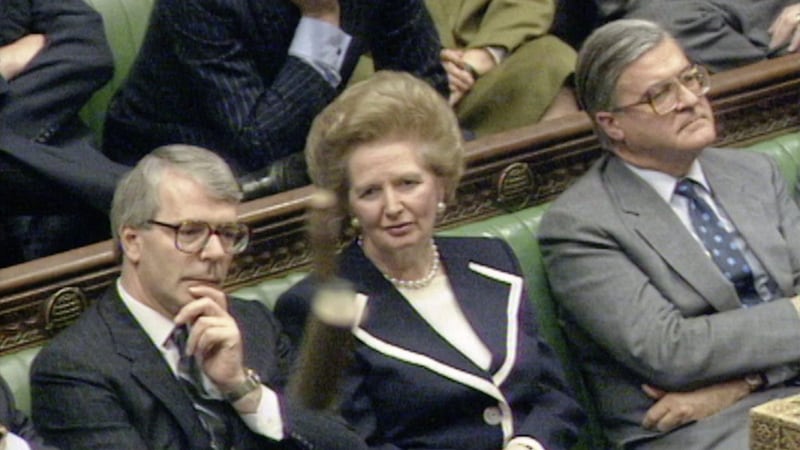There are a couple of things worth getting out of the way first. Top of the list is the fact that the British government will always put its own interests above the needs of the people of this island.
That was the case during the struggle for Home Rule, and the aftermath of the War of Independence; it was the case during the decades of sectarian government when Westminster turned a blind eye to the gross abuse of human rights in Northern Ireland; it was the case during the peace process when the Major government dragged its feet; and it is the case now with a reprobate in Downing Street who puts his personal interest before that of his party, and his party’s interest before that of the country, and England’s interests before ours.
This will not be news to nationalists. Surprisingly, for many unionists, that reality is still to sink in. Northern Ireland is not as British as Finchley, never was and never will be. Even Margaret Thatcher knew that.
The second truth is that partition was a failure. We know well it failed nationalists – disenfranchised, deprived of jobs, and homes and dignity. But it also failed unionists. The Protestant working class suffered while the landed gentry – the O’Neills and Chichester-Clarks and Faulkners of this world – played at being prime ministers.
Look around you and you will see their monument – poverty on a grand scale in unionist areas across the north; educational under-attainment creating a generation ill-equipped for the knowledge economy; and a community, once proud, cowed and defensive and politically ill-equipped to deal with the challenges of today.
If this year’s centenary of Northern Ireland means anything, it should be a wake-up call to unionists who have been hoodwinked and played for fools – and not just by successive British governments, but by their own leaders too: political lightweights who have been bought off with the trappings of power – invitations to the palace, visits to Downing Street, ministerial cars, you know the drill. So used to incompetence have we become, that nobody notices the whiff of failure that accompanies the first minister and her retinue wherever she goes (it smells of burnt wood pellets, by the way).
Quite why unionism has been unable to find visionary and credible leadership is beyond comprehension. There are some very fine minds – in business, in education, in the third sector, even in the civil service – but all stymied by a political structure that sees only in red, white and blue; and where the lowest common denominator is the end point of a discussion, rather than the beginning of one.
The loss of reason in unionism can best be seen in its approach to Brexit. By advocating the hardest of hard Brexits, with no advantage for its electorate, the DUP abdicated its responsibilities – not only to Northern Ireland, but to the long-term stability of the kingdom it claims as its own.
Brexit alone makes cash-for-ash pale into insignificance. But mismanagement is not the only outcome of the DUP’s approach to governance. We have the wilful dismissal of women’s rights, the continual denigration of the LGBTQ community, and constant undermining and politicisation of the Irish language – a cultural force for good that belongs to us all, unionist and nationalist.
Nobody claimed the peace process would be easy. ‘Two steps forward, one step back’ is fine if the momentum is there. But the direction of travel at the moment is like that of the mythical Spiral Bird which flies in ever-decreasing circles until it disappears up its own backside.
So where do we look now for help and support? In the past, the combined forces of the British and Irish governments, the European Union and the United States brought their leverage to bear.
The result was the Good Friday Agreement – the single biggest step forward for reconciliation in modern Irish history.
But the runes are no longer good. In Westminster there is a British government which claims a selfish strategic interest in this part of Ireland; in Dublin sits a taoiseach with a partitionist mentality; and we have been cut off from Europe by an English majority and against the expressed will of the Northern Irish electorate.
The only ray of hope is the continued interest of American President Joe Biden who has expressed forcibly his commitment to the agreement and the cause of peace.
Against that backdrop the only way forward for Northern Ireland is a new political compact, where unionism and nationalism exercise power for the benefit of all on the island of Ireland, unhitched from a kingdom that can no longer claim to be united.









